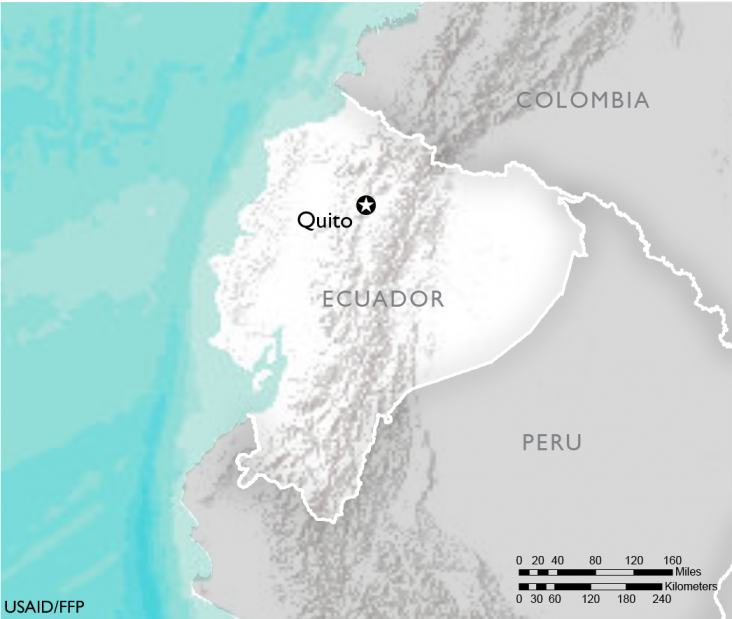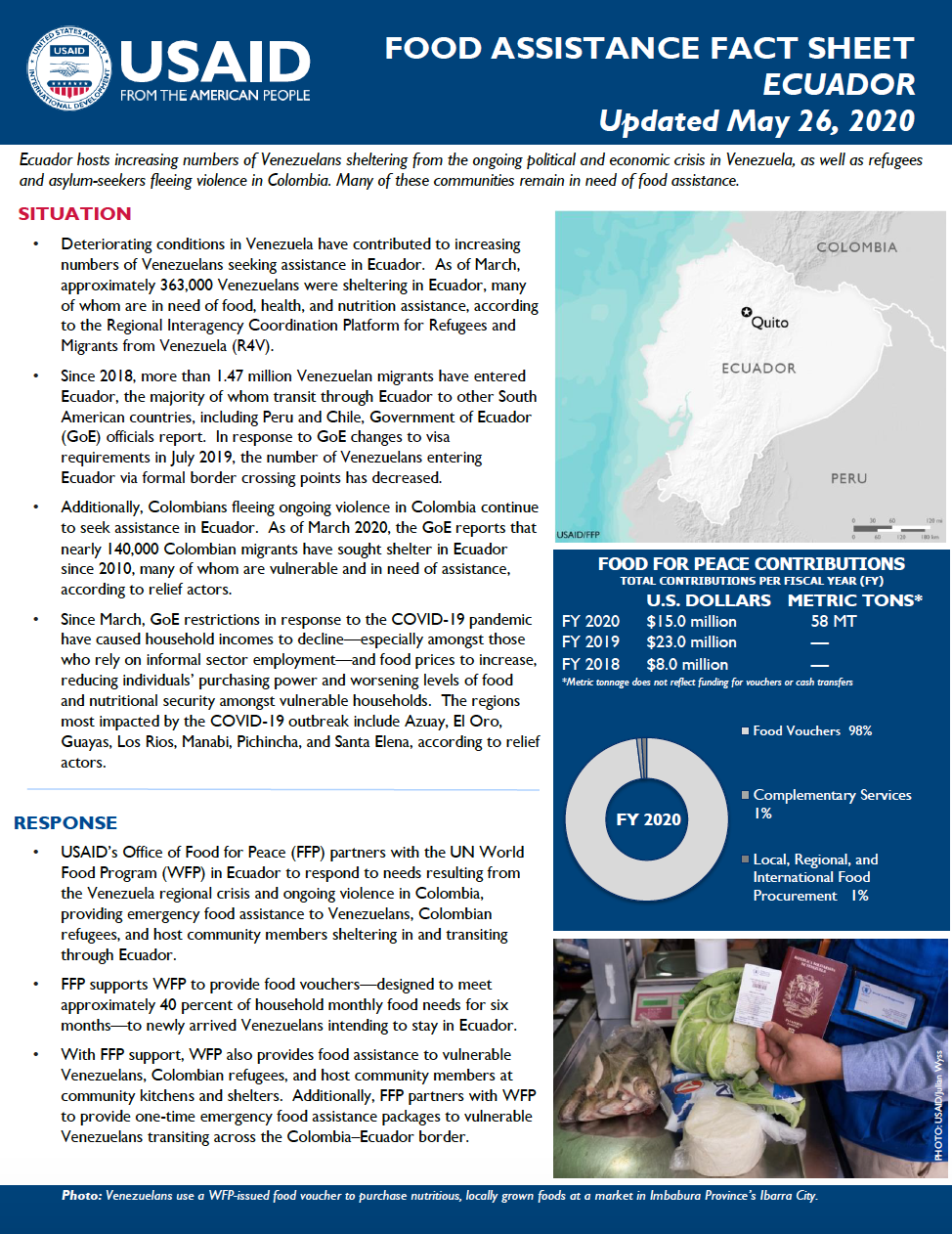Home » What We Do » Agriculture and Food Security » Food Assistance » Where We Work » Food Assistance Fact Sheet - Ecuador
- What We Do
- Agriculture and Food Security
- Democracy, Human Rights and Governance
- Economic Growth and Trade
- Education
- Environment and Global Climate Change
- Gender Equality and Women's Empowerment
- Global Health
- Humanitarian Assistance
- Transformation at USAID
- Water and Sanitation
- Working in Crises and Conflict
- U.S. Global Development Lab
Speeches Shim

May 26, 2020
Ecuador hosts increasing numbers of Venezuelans sheltering from the ongoing political and economic crisis in Venezuela, as well as refugees and asylum-seekers fleeing violence in Colombia. Many of these communities remain in need of food assistance.
Situation
- Deteriorating conditions in Venezuela have contributed to increasing numbers of Venezuelans seeking assistance in Ecuador. As of March, approximately 363,000 Venezuelans were sheltering in Ecuador, many of whom are in need of food, health, and nutrition assistance, according to the Regional Interagency Coordination Platform for Refugees and Migrants from Venezuela (R4V).
- Since 2018, more than 1.47 million Venezuelan migrants have entered Ecuador, the majority of whom transit through Ecuador to other South American countries, including Peru and Chile, Government of Ecuador (GoE) officials report. In response to GoE changes to visa requirements in July 2019, the number of Venezuelans entering Ecuador via formal border crossing points has decreased.
- Additionally, Colombians fleeing ongoing violence in Colombia continue to seek assistance in Ecuador. As of March 2020, the GoE reports that nearly 140,000 Colombian migrants have sought shelter in Ecuador since 2010, many of whom are vulnerable and in need of assistance, according to relief actors.
- Since March, GoE restrictions in response to the COVID-19 pandemic have caused household incomes to decline—especially amongst those who rely on informal sector employment—and food prices to increase, reducing individuals’ purchasing power and worsening levels of food and nutritional security amongst vulnerable households. The regions most impacted by the COVID-19 outbreak include Azuay, El Oro, Guayas, Los Rios, Manabi, Pichincha, and Santa Elena, according to relief actors.
Response
- USAID’s Office of Food for Peace (FFP) partners with the UN World Food Program (WFP) in Ecuador to respond to needs resulting from the Venezuela regional crisis and ongoing violence in Colombia, providing emergency food assistance to Venezuelans, Colombian refugees, and host community members sheltering in and transiting through Ecuador.
- FFP supports WFP to provide food vouchers—designed to meet approximately 40 percent of household monthly food needs for six months—to newly arrived Venezuelans intending to stay in Ecuador.
- With FFP support, WFP also provides food assistance to vulnerable Venezuelans, Colombian refugees, and host community members at community kitchens and shelters. Additionally, FFP partners with WFP to provide one-time emergency food assistance packages to vulnerable Venezuelans transiting across the Colombia–Ecuador border.
Food Assistance Fact Sheet - Ecuador ![]() (pdf - 272k)
(pdf - 272k)
Food for Peace Contributions
Total Contributions:
| U.S. Dollars | Metric Tons | |
|---|---|---|
| Fiscal Year 2020 | $15.0 million | 58 MT |
| Fiscal Year 2019 | $23.0 million | --- |
| Fiscal Year 2018 | $8.0 million | --- |
* Metric tonnage does not reflect funding for vouchers or cash transfers.


Comment
Make a general inquiry or suggest an improvement.